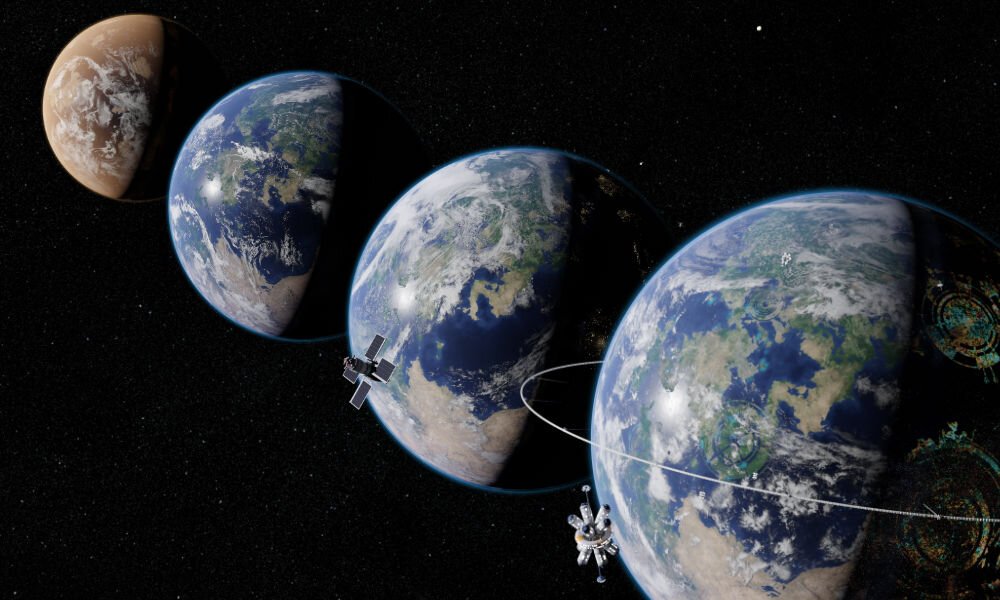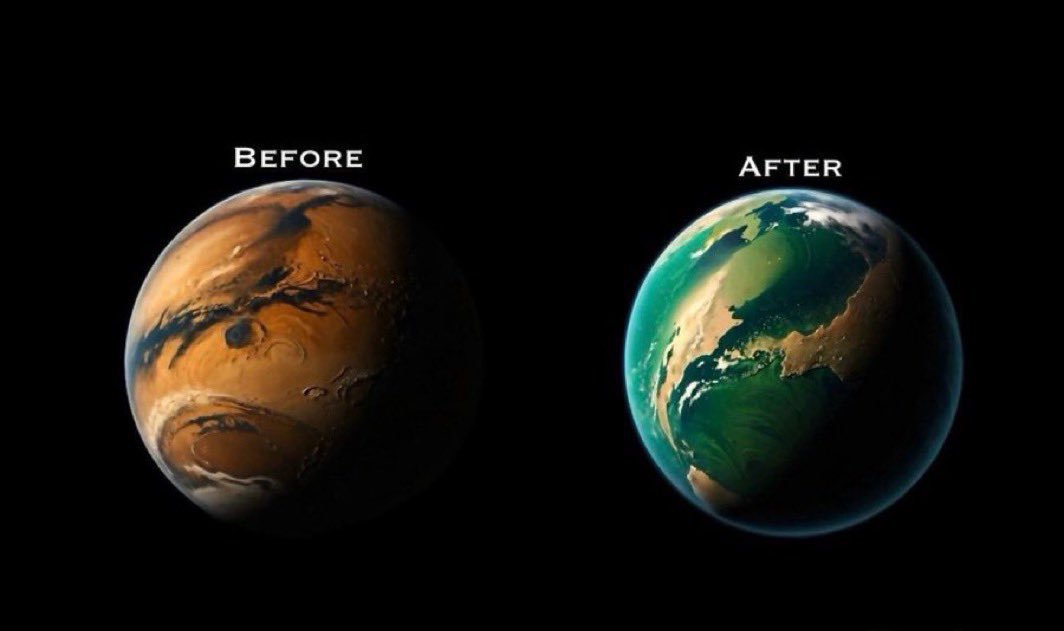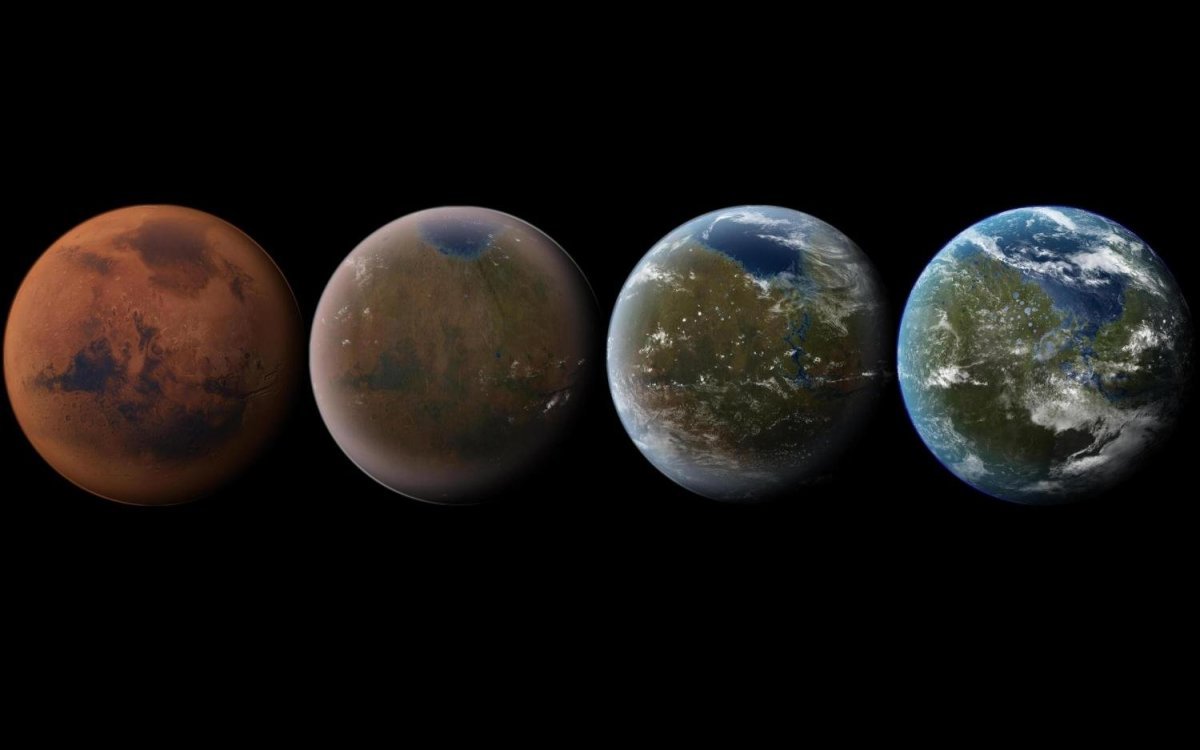As space agencies and private companies push for interplanetary colonization, the ethics of terraforming remains a hot topic. Terraforming Mars ethics and the broader question of should we modify planets? raise profound scientific, environmental, and moral concerns. Making other planets livable for humans is impressive. However, it raises concerns about keeping those planets safe, the chance of alien life, and our duty to care for the universe.
Terraforming is often seen as the next step in humanity’s expansion beyond Earth. Some people believe we must change Mars or other planets. They think this is important for our long-term survival. Climate change and resource depletion threaten our planet. Some warn that planetary engineering might cause unexpected problems. These issues could affect alien ecosystems and human settlers too.
This article looks at the ethical and scientific debates on planetary engineering. It covers important topics like environmental impact, planetary sovereignty, and how planetary protection policies affect the future of space colonization.
The Science Behind Terraforming

What is Terraforming?
Terraforming means changing a planet’s atmosphere, climate, and surface to make it like Earth. The most commonly discussed candidate for terraforming is Mars, due to its similarities to Earth in terms of size and composition. However, Venus and even some of Jupiter’s and Saturn’s moons have also been considered as potential targets for planetary modification.
Proposed methods for terraforming include:
- Releasing Greenhouse Gases: Pumping carbon dioxide into the Martian atmosphere to create a greenhouse effect and warm the planet.
- Melting Polar Ice Caps: Using nuclear detonations or giant mirrors to release water and CO₂ trapped in Martian ice caps.
- Introducing Microbial Life: Genetically engineered bacteria or algae could be used to produce oxygen and transform the atmosphere.
- Building Magnetic Shields: Artificial magnetic fields could help protect Mars from solar winds and atmospheric stripping.
- Importing Ammonia-Rich Asteroids: Colliding Mars with asteroids containing ammonia could thicken its atmosphere and enhance planetary warming.
While these approaches sound promising, they come with significant ethical and environmental challenges.
Ethical Concerns: Should We Modify Planets?
The Risk of Destroying Alien Ecosystems
One of the major ethical concerns in terraforming Mars ethics is the potential impact on any existing microbial life. While Mars appears barren, scientists have not ruled out the possibility of simple life forms beneath its surface. If alien microbes exist, altering the Martian environment could lead to their extinction, disrupting an ecosystem we barely understand.
Key ethical questions include:
- Do we have the right to alter a planet that may host life?
- Would destroying microbial life on Mars be considered an act of environmental destruction?
- Should efforts focus on studying alien ecosystems rather than transforming them?
Some scientists argue that planetary engineering should only be considered if Mars is confirmed to be lifeless. Others maintain that even a barren planet has intrinsic value and should be preserved in its natural state.
The Impact on Planetary Sovereignty
Another significant concern is whether humanity has the moral right to claim and modify other planets. Current planetary protection policies, such as those outlined in the Outer Space Treaty of 1967, emphasize non-contamination of celestial bodies. However, with commercial spaceflight growing, companies may push for looser regulations in order to colonize and terraform planets.
Key debates include:
- Who owns a terraformed planet? If Mars is successfully transformed, would it belong to Earth, private companies, or future Martian settlers?
- What are the political and legal implications of modifying planets? Would Mars have its own governance, or would it remain under Earth’s jurisdiction?
- How can international space law adapt to large-scale planetary engineering? As terraforming becomes a reality, laws governing property rights, resource extraction, and environmental preservation will need to evolve.
Environmental and Ethical Responsibility
Terraforming is a form of large-scale environmental manipulation. On Earth, human intervention has led to climate change, deforestation, and pollution. Would we be repeating our mistakes on a planetary scale? Some argue that rather than trying to fix Mars, humanity should focus on solving Earth’s environmental crises first.
Additionally, planetary engineering might lead to unforeseen consequences. If we introduce Earth-based life forms to Mars, they could mutate in unexpected ways due to different environmental pressures. Such changes could render Mars uninhabitable or create hazards for future settlers.
The Role of Planetary Protection Policies
The Importance of Preserving Celestial Bodies
Planetary protection policies are designed to prevent contamination of other worlds with Earth-based organisms and vice versa. The main objectives include:
- Protecting extraterrestrial life (if it exists) from human interference.
- Ensuring that scientific research on other planets remains uncontaminated.
- Preventing Earth from being exposed to potential extraterrestrial microbes.
Currently, planetary protection laws make it difficult to proceed with full-scale terraforming efforts. However, as technology advances, governments and private companies may challenge these restrictions in pursuit of interplanetary expansion.
Future Regulations and Ethical Frameworks
As space travel progresses, international laws may need to evolve to address the ethics of terraforming. Possible future regulations could include:
- Global agreements on planetary ownership and stewardship. If Mars is terraformed, will it be owned collectively by humanity or controlled by a specific nation or corporation?
- Protocols for environmental assessments before modifying planets. Ethical guidelines similar to those governing environmental protection on Earth could be applied to space.
- Stronger guidelines on the balance between exploration and preservation. Should some planets be left untouched as nature reserves, even if they lack life?
- Stricter Biosecurity Measures. Ensuring that any Earth-based life introduced to another planet does not pose unforeseen risks to the environment or future colonists.
Potential Benefits of Terraforming

While there are strong ethical arguments against planetary modification, some experts argue that terraforming could provide significant benefits for humanity:
- A Backup for Humanity: Terraforming Mars or another planet could serve as an insurance policy against existential threats such as climate change, nuclear war, or asteroid impacts.
- Scientific Advancements: Terraforming research could lead to breakthroughs in climate science, atmospheric engineering, and biotechnology.
- Resource Utilization: Planets like Mars contain valuable minerals and elements that could support human industry and development.
If done responsibly, terraforming could represent a major step forward in our ability to adapt and thrive beyond Earth.
Balancing Progress and Responsibility: The Future of Terraforming
Terraforming presents both exciting possibilities and profound ethical challenges. The debate over terraforming Mars ethics forces us to ask: should we modify planets? While transforming Mars could provide a future home for humanity, it also risks harming potential ecosystems and raising political and legal dilemmas.
As discussions around planetary protection policies continue, it is crucial to weigh scientific ambition against ethical responsibility. Humanity must consider whether planetary engineering is a necessity for survival or an overreach of power.
Ultimately, the decision to terraform another planet should not be taken lightly. We must balance innovation with responsibility, ensuring that whatever choices we make respect both the integrity of celestial bodies and the future of humanity in space.
What do you think? Should we terraform Mars, or should we focus on preserving planets in their natural state? Share your thoughts in the comments below!


